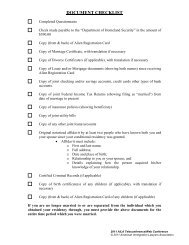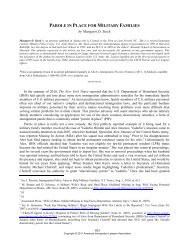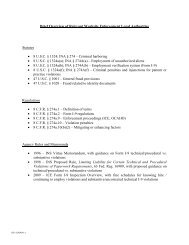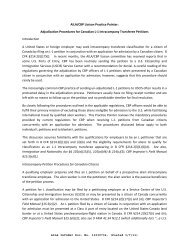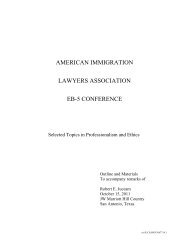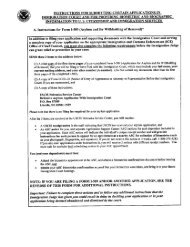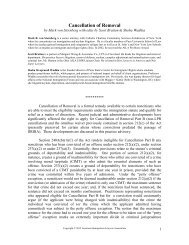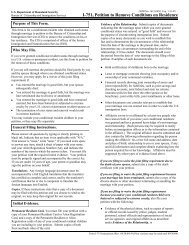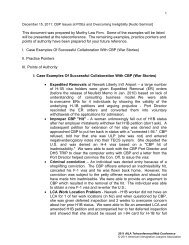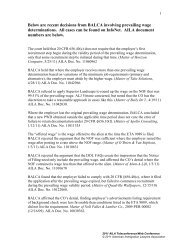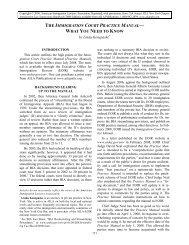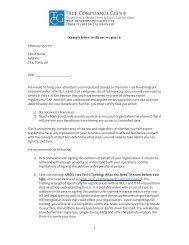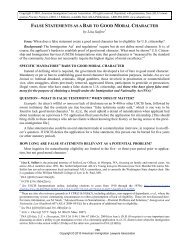Resources for 8-24-11 Seminar - AILA webCLE
Resources for 8-24-11 Seminar - AILA webCLE
Resources for 8-24-11 Seminar - AILA webCLE
Create successful ePaper yourself
Turn your PDF publications into a flip-book with our unique Google optimized e-Paper software.
2. While the noncitizen is in removal proceedings. An officer can exerciseprosecutorial discretion over:• Whether to agree to join a motion to administratively close or terminate aremoval case;• Whether to agree to a continuance <strong>for</strong> the person to become eligible <strong>for</strong> reliefat a later date (i.e., while waiting <strong>for</strong> a family member to naturalize);• Whether to amend the NTA to change or remove certain charges;• Whether to agree not to oppose a grant of relief or voluntary departure;• Whether to agree to limit the issues to be heard or the evidence presented;• Whether to appeal an immigration judge decision that ruled in favor of anoncitizen;• Whether to grant deferred action or otherwise settle the case;3. After issuance of a removal order. An officer can exercise prosecutorialdiscretion over:• Whether to not oppose a motion to reopen;• Whether to join in a proposed joint motion to reopen;• Whether to stay the execution of a removal order;• Whether to place the individual on supervised release, rather than detain theindividual;• Whether to grant a noncitizen deferred action; and• Whether to agree to a remand if a case is be<strong>for</strong>e a court of appeals on apetition <strong>for</strong> review.What is deferred action status and is it a favorable grant of prosecutorialdiscretion?Deferred action is a DHS decision not to pursue en<strong>for</strong>cement against a person <strong>for</strong> aspecific period of time, in the exercise of the agency’s prosecutorial discretion. The grantof deferred action by USCIS does not confer lawful immigration status or alter theperson’s existing immigration status. See ICE, “Detention and Deportation Officer’sField Manual” (updated Mar. 27, 2006). While deferred action does not affect anyalready existing period of unlawful presence, periods of time in deferred action do qualifyas periods of stay authorized by the Secretary of DHS <strong>for</strong> purposes of INA §§212(a)(9)(B) and (C)(i)(I). See Donald Neufeld, Acting Assoc. Dir., USCIS,“Consolidation of Guidance Concerning Unlawful Presence <strong>for</strong> Purposes of Sections212(a)(9)(B)(i) and 212(a)(9)(C)(i)(I) of the Act” (May 6, 2009). Note, however, thatdeferred action cannot be used to establish eligibility <strong>for</strong> any immigration benefit thatrequires maintenance of lawful status.An individual with deferred action may apply <strong>for</strong> an Employment AuthorizationDocument (EAD) if she can establish an economic necessity <strong>for</strong> employment. 8 C.F.R. §274(a).12(c)(14). Thus, it can be a significant benefit to a person without other options<strong>for</strong> relief.8



